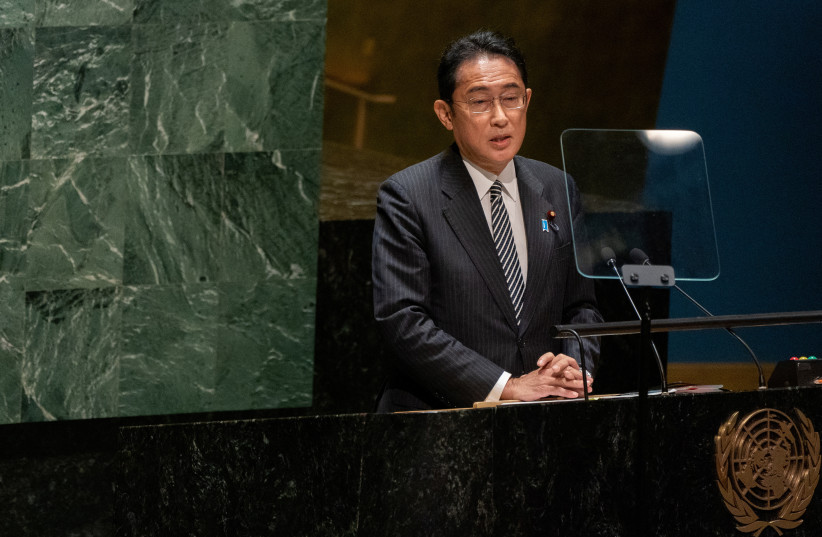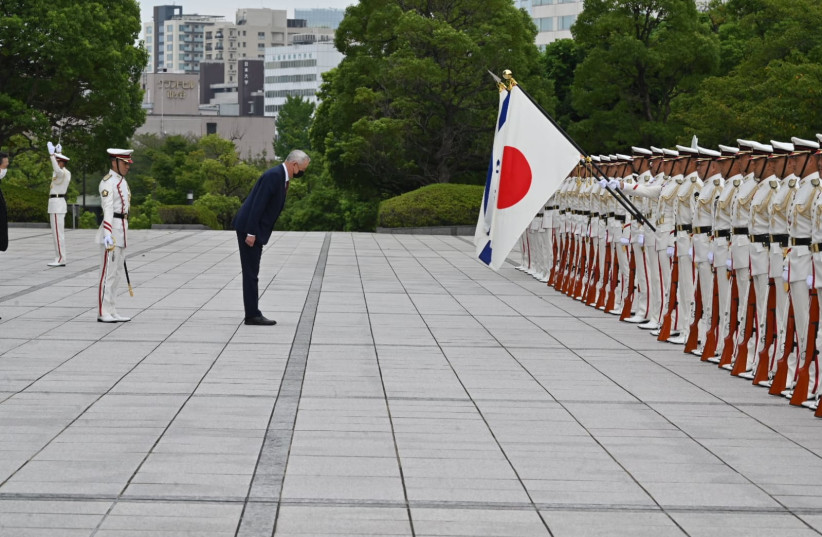President Joe Biden told Japanese Prime Minister Fumio Kishida on Friday the United States was "fully, thoroughly, completely" committed to Japan's defense and praised Tokyo's security build up, saying the nations had never been closer.
Kishida is in Washington on the last stop in a tour of the G7 industrial powers and has been seeking to bolster long-standing alliances amid rising concern in Japan, and the United States, about mounting regional security threats from China, North Korea and Russia.
In a meeting at the White House, Biden called it a "remarkable moment" in the US-Japan alliance. He said the two countries had never been closer.
"Let me be crystal clear: The United States is fully, thoroughly, completely committed to the alliance, and importantly ... to the defense of Japan," he said, while also thanking Kishida for strong leadership in working closely on technology and economic issues.
"We are modernizing our military alliances, building on Japan's historic increase in defense spending, and new national security strategy," Biden said.

Kishida thanked Biden for US work on regional security and said: "Japan and the United States are currently facing the most challenging and complex security environment in recent history." He said Tokyo had formulated its new defense strategy released last month "to ensure peace and prosperity in the region."
He said the two countries shared fundamental values of democracy and the rule of law "and the role that we are to play is becoming even greater."
Kishida said he looked forward to a "candid" exchange of views on issues including "a free and open Indo-Pacific" - language the two sides use to describe efforts to push back against China - the G7, which Japan's currently chairs, and climate change.
In a later speech at Washington's Johns Hopkins School of Advanced International Studies, Kishida called China the "central challenge" for both Japan and the United States and said they and Europe must act in unison in dealing with the country.
Kishida also stressed the importance of standing up to Russia's invasion of Ukraine, saying that if a unilateral change to the status quo went unchallenged, the same would happen elsewhere, including in Asia - an apparent reference to China's vow to reunite with self-ruled Taiwan, by force if necessary.
Dramatic military change
Japan last month announced its biggest military build-up since World War Two - a dramatic departure from seven decades of pacifism, largely fueled by concerns about Chinese actions in the region.
"Biden commended Japan’s bold leadership in fundamentally reinforcing its defense capabilities and strengthening diplomatic efforts," according to a joint US-Japan statement issued after the meeting.
US and Japanese foreign and defense ministers met on Wednesday and announced increased security cooperation following nearly two years of talks and the US officials praised Tokyo's military buildup plans.

Japan's military reform plan will see it double defense spending to 2% of GDP and procure missiles that can strike ships or land-based targets 1,000 km (600 miles) away.
Before the meeting, a senior US official said Biden and Kishida were expected to discuss security issues and the global economy and that their talks are likely to include control of semiconductor-related exports to China after Washington announced strict curbs last year.
Semiconductors
The joint statement said the United States and Japan "will sharpen our shared edge on economic security, including protection and promotion of critical and emerging technologies, including semiconductors."
Kishida, Japan's Foreign Minister Hayashi and US Secretary of State Antony Blinken later signed an agreement on peaceful space exploration at NASA’s headquarters in Washington.
Blinken said this would take space cooperation "to new heights" and strengthen the partnership in areas including research into space technology and transportation, robotic lunar surface missions, climate-related missions, and "our shared ambition to see a Japanese astronaut on the lunar surface."
At the ceremony, Kishida said the US-Japan alliance was "stronger than ever."
As well as chairing the G7, Japan took up a two-year term on the Security Council on Jan. 1 and holds the rotating monthly presidency of the 15-member body for January.
Kishida has said he backs Biden's attempt to limit China's access to advanced semiconductors with export restrictions. Still, he has not agreed to match sweeping curbs on exports of chip-manufacturing equipment that Washington imposed in October.
The US official said Washington was working closely with Japan on the issue and believes they share a similar vision even if their legal structures are different. He said the more countries and significant players that backed the controls, the more effective they would be.
A Japanese official said economic security, including semiconductors, was likely to be discussed, but that no announcement was expected on that from the meeting.
Biden and Kishida committed to "strengthening vital trilateral cooperation" among the United States, Japan and South Korea, said the joint statement, which follows North Korea's decision to exponentially increase its nuclear force and codify its right to a first strike.
Kishida's visit follows one by Biden to Tokyo in May and a meeting between the two at a November regional summit in Cambodia.
